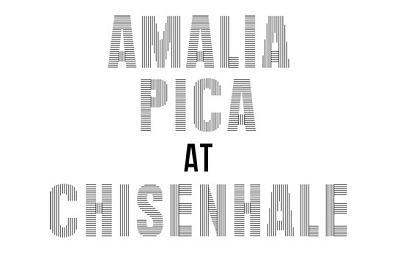Descripción de la Exposición When the term 'romantic conceptualism' reached its apotheosis several years ago, the touchstone appeared, almost unanimously, to be Bas Jan Ader's I'm Too Sad to Tell You (1971). Gushing affect, it also self-reflexively performed the romantic artist's predicament: the subjectivity romanticism gives license to profess proves, alas, incommunicable. Consistently and even compulsively concerned with failures of communication, Amalia Pica takes little pains to hide romantic tendencies in her recent exhibition 'Endymion's Journey.' The journey in question is the voyage made by a copy of John Keats's narrative poem Endymion in the charge of explorer Joseph Ritchie, who promised the English poet that he would cast the edition 'into the heart of the Sahara.' True to his word, the book was lost in the desert-but so, unfortunately, was Ritchie. Pica relates this tale on a placard posted beside a billboard-size backdrop of a desert vista; splayed open at its feet, a weathered copy of Endymion lies where Pica flung it during the opening (the first time as tragedy, the second as farce, indeed). Endymion was poorly received when Keats published it, and Pica's work smartly parlays that critical failure into the poignancy of-literally-losing one's audience. Offsetting this pathos are whimsical 'catachrestic' assemblages (composed, for instance, of 'the legs of the table, the neck of the bottle, the elbow of the pipe,' etc.) and the cheery pseudopainting of Some of That Color #4 (all works 2011): rainbow bunting strung in front of a watercolor that Pica produced by bleeding some of the bunting onto a large sheet of paper. Pica reprises the rainbows across the room in Eavesdropping, a varicolored collection of drinking glasses affixed to the wall. The room on the other side happens to be the gallery's private office, and though the fragility of the installation makes eavesdropping a practical impossibility, the suggestion is enough to inject a dose of institutional critique where critics of romantic conceptualism feared it had been supplanted by sentiment. Incomplete Archive of Record Cards is somewhat less successful on this account: a collection of trompe-l'oeil notecards, blank except for a series of stamped digits in the corner, they seem like romantic conceptualism-by-number, reinvesting the aesthetics of administration with the nostalgic warmth of hand-drawn work and the melancholic suggestion of lost or simply unutterable information ('I'm too sad to file it'). As a historical reevaluation, romantic conceptualism promised a similar antidote to conceptualism's austerity and ostensive refusal of subjectivity. Bas Jan Ader's oeuvre proves such an awesome example in that it satisfies this promise, but also enacts its costs: in the maudlin aphasia of I'm Too Sad to Tell You or the vaudevillian ineffectuality of his Falls (1970-71), Ader exposes the impotence of the tortured artist, which in the early seventies-following the social, political, and institutional critique levied by his near forebears-had clear political implications. Pica's mother is a prominent Argentinian politician, and the artist was raised in an environment that prized rhetorical efficacy. Her preoccupation with linguistic misfires and failed transmissions, however, seems to spell withdrawal from that world, and her overloaded exhibition space here betrays an anxiety about the impact of a handful of poetic gestures. This makes the final work in the exhibition all the more refreshing and complex. A pentagonal stage painstakingly constructed out of cardboard, Stage (as Seen on Afghan Star) reproduces the platform from an Afghani show in the genre of American Idol. Like Ritchie's Endymion, the broadcast of Afghan Star often vanishes in the desert: the Taliban outlawed television sets in 1998, and many Afghani still do not have access to a TV, so the transmission rarely reaches an audience. I found myself wishing the two works could have faced each other alone, meeting where romantic reflection confronts political reality-in the subjects themselves, who dream within and are engulfed by it.

Creación, 31 may de 2012
Amalia Pica presenta su primera exposición individual en el Reino Unido
Por ARTEINFORMADO
La artista argentina con base en Londres, Amalia Pica (Neuquén Capital, 1978), presenta en la Chisenhale Gallery de Londres hasta mediados del próximo mes de julio la que es su ...

Grandes Eventos, 15 sep de 2011
Ferrari, Marcaccio y Pica inauguraron exposiciones individuales
Por ARTEINFORMADO
De entre las exposiciones inauguradas en los últimos 15 días por artistas españoles, portugueses y latinoamericanos fuera de sus países de origen sobresalen las tres individuales que tienen como protagonistas ...

Formación. 08 may de 2025 - 17 may de 2025 / Museo Nacional Centro de Arte Reina Sofía (MNCARS) / Madrid, España